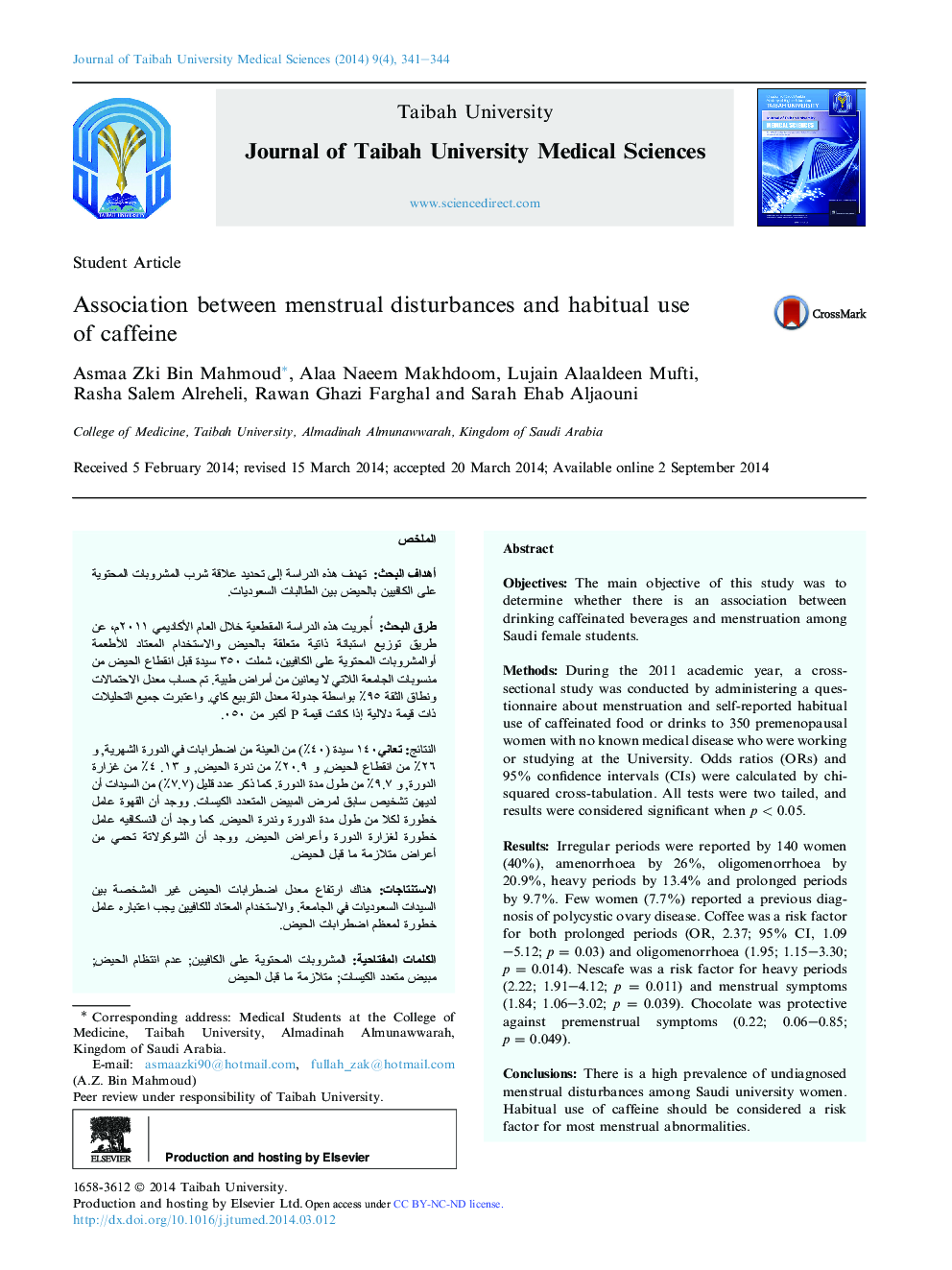| Article ID | Journal | Published Year | Pages | File Type |
|---|---|---|---|---|
| 3484447 | Journal of Taibah University Medical Sciences | 2014 | 4 Pages |
ObjectivesThe main objective of this study was to determine whether there is an association between drinking caffeinated beverages and menstruation among Saudi female students.MethodsDuring the 2011 academic year, a cross-sectional study was conducted by administering a questionnaire about menstruation and self-reported habitual use of caffeinated food or drinks to 350 premenopausal women with no known medical disease who were working or studying at the University. Odds ratios (ORs) and 95% confidence intervals (CIs) were calculated by chi-squared cross-tabulation. All tests were two tailed, and results were considered significant when p < 0.05.ResultsIrregular periods were reported by 140 women (40%), amenorrhoea by 26%, oligomenorrhoea by 20.9%, heavy periods by 13.4% and prolonged periods by 9.7%. Few women (7.7%) reported a previous diagnosis of polycystic ovary disease. Coffee was a risk factor for both prolonged periods (OR, 2.37; 95% CI, 1.09–5.12; p = 0.03) and oligomenorrhoea (1.95; 1.15–3.30; p = 0.014). Nescafe was a risk factor for heavy periods (2.22; 1.91–4.12; p = 0.011) and menstrual symptoms (1.84; 1.06–3.02; p = 0.039). Chocolate was protective against premenstrual symptoms (0.22; 0.06–0.85; p = 0.049).ConclusionsThere is a high prevalence of undiagnosed menstrual disturbances among Saudi university women. Habitual use of caffeine should be considered a risk factor for most menstrual abnormalities.
